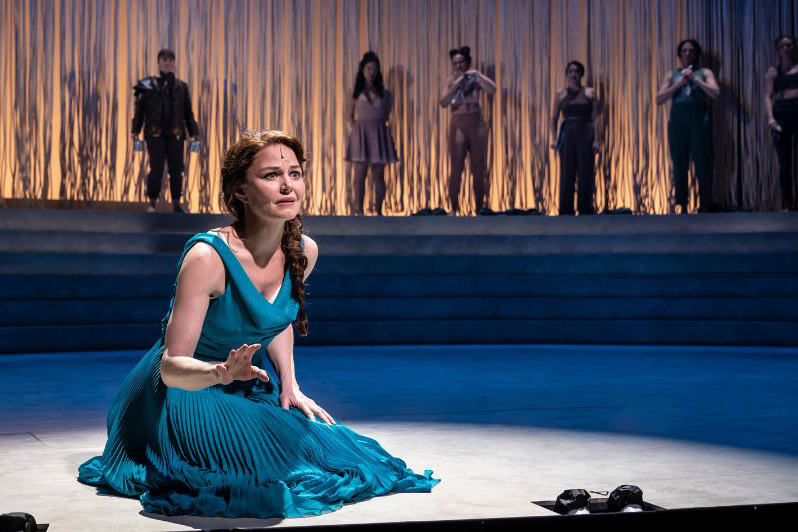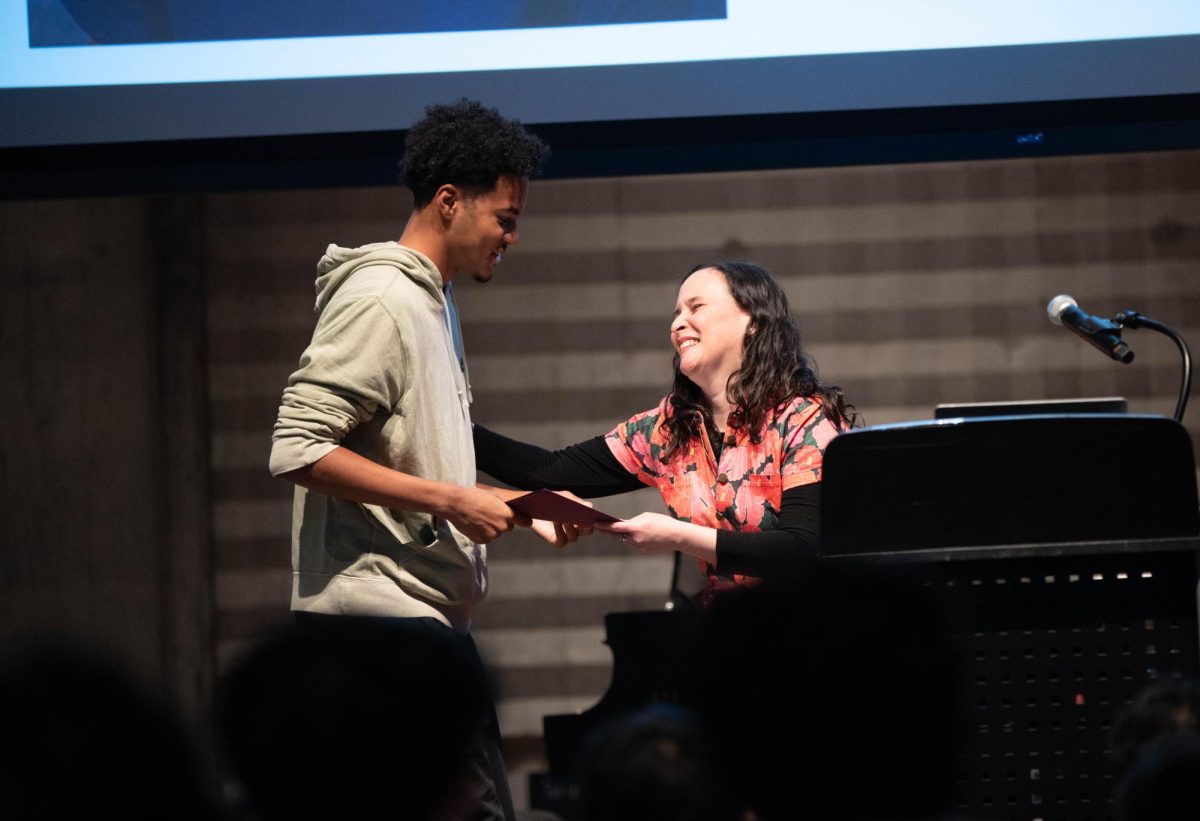As spectators walk into the Goodman Theatre for a viewing of “The Penelopiad,” an unusual yet outstanding sight awaits them. Wearing an elegantly simple dress and braided hairstyle reminiscent of ancient Greece, the protagonist of the tale, already in character, sits contemplatively on a set. She does not acknowledge the audience as people settle into their seats and wait for the show to begin.
Suddenly, the light darkens, and the woman springs to life.
“The Penelopiad,” a new theatrical interpretation of “The Odyssey” written by Margaret Atwood and directed by Susan Booth running through March 31, revaluates history and depicts the horrific experiences and sufferings of both the privileged and underprivileged women of ancient Greece, weaving a tale of tragedy and trauma, including some parts which may be more difficult to digest.
The woman on stage is Penelope (Jennifer Morrison), the queen of Ithaca from “The Odyssey,” Homer’s famous epic poem, which many U-High students studied in ninth grade English classes. “The Odyssey” follows the tumultuous story of military leader Odysseus and his decade-long journey following the 10-year Trojan War as he made his way home to Ithaca, where he is king, and where his wife and queen, Penelope, awaits him.
“The Penelopiad” flips the script on its head by giving the narrator role to Penelope, centering the show on her life in Ithaca rather than Odysseus’ journey. It also gives voice to other women of ancient Greece through its focus on Penelope’s intricate relationship with the young female maids of Ithaca.
Told from her afterlife and in retrospect, Penelope speaks directly to the audience throughout the play, winning our support and sympathy, and therefore being able to sway our emotions accordingly. Her version of the story centers around how she desperately waited for Odysseus, while in his absence cunning men in search of power forced themselves upon her and the institution.
Although Penelope describes the limited power she had over events in her own life as a woman, she also claims throughout her life she was “a stick used to beat other women with.” A recurring theme is the awareness of how maids were treated during this era of history, especially those working under forced labor and those abused in unwanted sexual encounters. The Ithacan maids find a unique space in Penelope’s heart and her story in the years Odysseus is away. With incredible balance, the all-female cast portrays the female royalty and female maids as well as several male characters, including Odysseus; Telemachus, the son of Odysseus and Penelope; and the numerous suitors attempting to overthrow Odysseus, whose masculine and often misogynistic influence chokeholds the storyline.
Lighter, comedic moments allow the story room to breathe and establish a comfort with the audience, which is important to later scenes where the dominating sources of evil in “The Penelopiad” crush all hopefulness and positivity. While the devastation underlining the storyline may not be an issue for some due to preference, U-High students must understand the Goodman Theatre labels “The Penelopiad” with a content advisory warning: some topics it discusses and depicts include sex, sexual assault, sexual violence and death in war. The recommendation is for viewers 14 years old and up, but teens interested in attending the show must consider how its mature and violent aspects will affect their experience.
In a time where we are rethinking how we tell our stories and histories, especially doing so from the viewpoint of sexually and socioeconomically underrepresented groups, “The Penelopiad” addresses the hidden realities present in our ancient world and today. The question comes down to whether a viewer — student or adult — believes they can handle the weight that comes with learning about them.





















